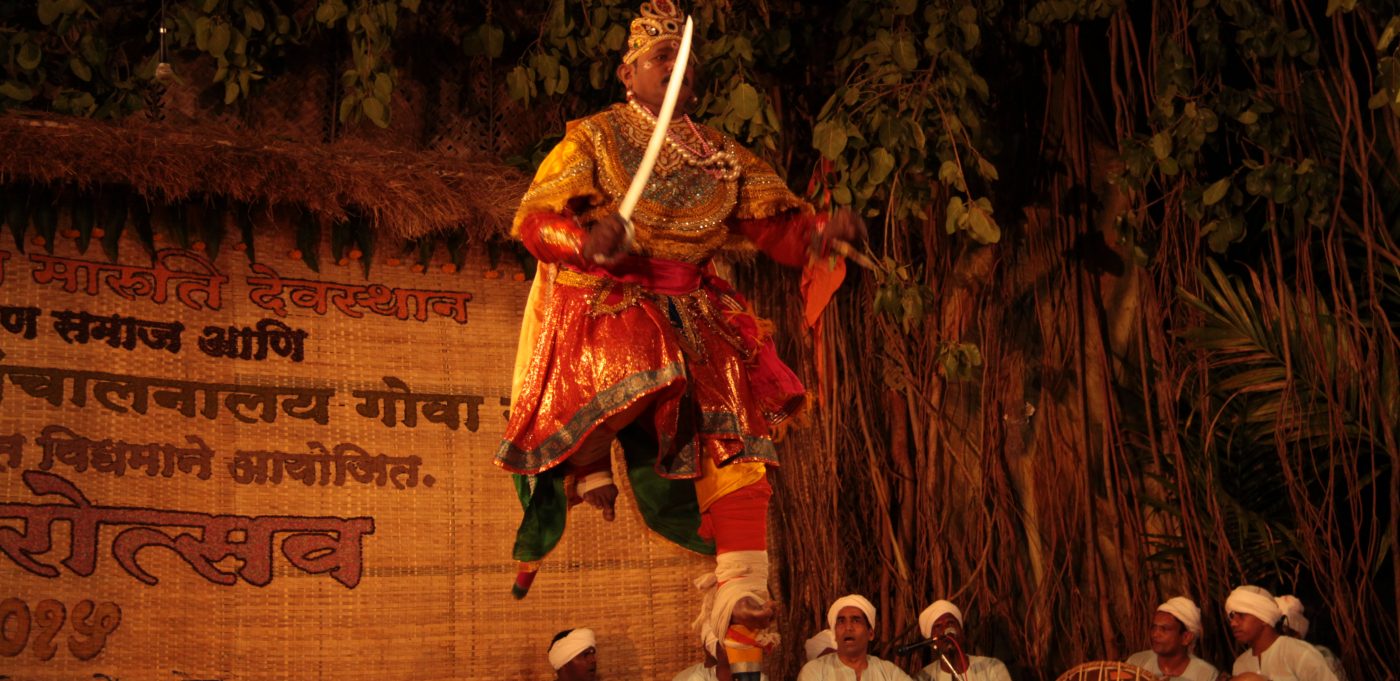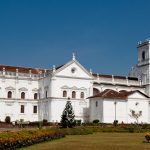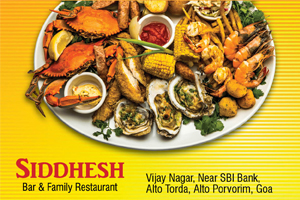SRUSHTI
While monsoons are making their way in Goa, a season full of vigor and zeal ended for the rural Goa. In this same season, one of the most beautiful and energetic folk festivals and theatres Zagor was celebrated in various places of Goa. Often called as the harvest festival, Zagor is celebrated after the pre-monsoon harvest. The term Zagor means vigil or being awake. Thus, it justifies the norm of Zagor of celebrating till the dawn.
It is an occasion of merriment for the villagers after receiving the fruit of their hard labour in the paddy fields. In most of the places the Gauda community celebrates this festival. It begins at around 11 pm and goes on till the dawn. Like other folk theatre forms, Zagor too has the ‘Naman’, the invocation in the beginning where local deities and the natural elements are invoked. There is a special mention for baslele sabhe which means invocation to the audience as well. Although performed by a single community, Zagor has characters which portray characters from various communities. The verses from Zagor make commentaries on the social evils like alcoholism. For instance, there is a character called Mharaali Sun who tells how her father in law and her husband have wasted all the money in the addiction of alcoholism. There is also various satirical as well as historical elements in Zagor. It brings in characters like Bala Hawaldaar, Nikhandaar, Parpati who are supposed to be the officers. They tie canes to their legs and dance which indeed is an interesting part of the whole form.
Although some of the elements are same yet there are variations according to the areas where Zagor is being performed. It also depends on whether the troupe performs only traditionally or it also does professional performances. For instance, the troupe from Veling is also a professional group. Thus, one can see the professional touch that has come into the traditional performance as well. Zagor is a very interactive and intimate kind of a theatre. The group that is supposed to sing and play instruments begins its journey from a house where the initial ‘naman’ is held and then they all together walk to the ‘maand’ where the actual performance takes place. Traditionally, this ‘maand’ was a open platform decorated with cow dung. But with modernisation the ‘maands’ have now taken a form of concrete or tiled areas. One can even see the coolers and other facilities arranged at the performance area. In some places game of ‘gadgado’ the local casino is also quite famous during Zagor nights. According to sources which have been kept anonymous for personal reasons these gambling activities bring about lakhs of turnover in one night. Zagor and its characters are so much influenced by the rulers and dynasties that have ruled over Goa.
Thus we find characters like Moir, a muslim officer and firgin, a catholic girl and her two brothers. There is no one plot or story for Zagor. It is a blend of various characters and their gimmicks and stories. Zagor now isn’t restricted to the regional spaces but has been performed in various national and international cultural festivals. But the traditional Zagor is the one where you get to see the whole and complete package; where as the professional performances have to be compact for various reasons.
The vigil festival Zagor has very much influenced the modern Konkani theatre. Attempts like Sood Zagor by Shridhar Bambolkar which was a Konkani adaptation of Shakespeare’s Hamlet have tried to adopt the form of Zagor in the modern performance. Pundalik Naik’s Premjagor originally a short story that tells the tale of a performer from Zagor is known for its great use of folk elements. The same story was transcreated by Naik into a play, with the same name. Initially performed by Kala Academy’s repertoire the play was once again staged and performed by Antruz Lalitak, a group of Ponda in this year’s state level drama competition of Kala Academy. Director of Premjagor Mr. Bambolkar has aptly made use of songs and dances from Zagor to stay faithful to the folk form. Siddhivinayak Mandal from Mardol which again is another professional folk performer troupe is a major part of this play. Thus, it can be said that folk theatre of Goa is now not just restricted to the performances in villages but has gone further to influence the modern theatre of Goa. It has the vigor, the energy and the regional sensibility that helps the villagers to identify themselves with. It is a ritual and a performance at the same time. And thus, has survived in this land for so many years.



























